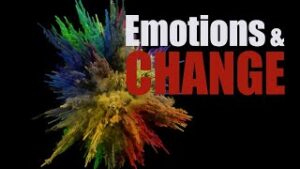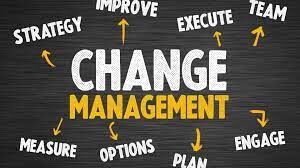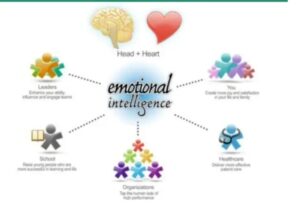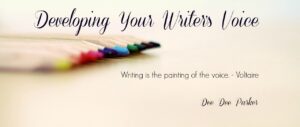by chandiniann | Oct 23, 2023 | Interesting Reads

Image Courtesy: Six Seconds
In the ever-evolving business realm, change is a constant (as it is in every aspect of our lives). Organizations that can adapt swiftly to new circumstances are the ones that thrive. However, managing change effectively isn’t just about strategy and planning; it’s also about understanding and harnessing the power of Emotional Intelligence (EI).
What is Emotional Intelligence?
Emotional Intelligence, often referred to as EI or EQ, is the ability to recognize, understand, and manage our own emotions and the emotions of others. It encompasses self-awareness, self-regulation, empathy, and effective communication. In change management, EI plays a pivotal role in leading and navigating transformations successfully.
Empathy Fuels Understanding
Change is often met with resistance and fear. People are naturally inclined to be wary of the unknown. Empathy (a key component of EI) plays a crucial role in this context. An emotionally intelligent leader understands the concerns and anxieties of their team. By listening and acknowledging these emotions, they can create a more receptive environment for change. Empathy thus builds trust, and trust is essential for change management.
Effective Communication
Clear and empathetic communication is a cornerstone of change management. Leaders with high EI can convey the need for change in a way that resonates with their team, making it more likely that the team will ‘buy into’ the process. Furthermore, emotional intelligence allows leaders to address concerns and answer questions in a way that reassures employees.
Adaptability
Change sometimes goes differently than planned. It’s crucial to be adaptable and flexible. Leaders with high EI can adjust to unforeseen challenges while maintaining their composure and ensuring their teams stay motivated. They understand that setbacks are part of the journey and handle them with resilience.
Self-Management
Leaders who possess strong self-regulation skills are less likely to be derailed by their own negative emotions during the change process. They can stay focused, manage stress, and inspire their teams with a sense of calm and control.
Building a Culture of EI
To truly harness the power of EI in change management, organizations need to foster a culture of emotional intelligence. This starts with leadership setting the example and encouraging its development throughout the team. Training and workshops can help employees understand and improve their emotional intelligence skills. (Connect with me chandini.khanna@gmail.com)
In a world where change is the only constant, leaders who understand the emotional dimensions of change and employ Emotional Intelligence as a tool for transformation will stand out. They are not just managing change but leading their teams through it, creating an environment where people thrive and embrace new challenges. Harness the power of Emotional Intelligence, and you’ll find that change becomes not just a challenge to overcome but a path to growth and success.

Image Courtesy: Evalueserve
by chandiniann | Oct 18, 2023 | Interesting Reads

Image Courtesy: YouTube
There is a rule in this bustling and globalized setting for business that is seldom acknowledged but can sometimes be decisive in establishing someone’s standing among his or her colleagues. Business etiquette is another word for this code, and it extends much further than knowing which fork to use in a formal setting. Business etiquette involves the appropriate behaviors, forms of communication, and interpersonal skills that contribute to professional relationships and the general organizational culture. At its core, lies Emotional Intelligence (EI)—a potent variable that determines and supports business etiquette.
Understanding Business Etiquette: The Subtle Art
The concept of “business etiquette” is not static as it changes depending on the prevailing culture within a society at any particular time and place. Among many threads of this intricate web are punctuality, appropriate apparel, and productive emails among others, as well as the knowledge of how to communicate properly between persons in different cultures. Business etiquette, at its core, simply expresses respect, courtesy, and thoughtfulness that creates a conducive work environment.
Emotional Intelligence and Business Etiquette
The term emotional intelligence, also known as EI or EQ refers to the capacity to acknowledge, comprehend, control, and make good use of one’s own feelings together with other people’s feelings. This is one of the most complex sets of skills, which makes it very important to correct business manners. Here’s how EI affects and sustains business etiquette:
Self-Awareness: EI rests on self-awareness – identifying one’s feelings, strengths, and weaknesses. Self-awareness within the context of business etiquette makes one realize the effect of one’s behavior on fellow employees or business partners. It helps professionals point out specific aspects of their etiquette that may require improvement.
Empathy: The concept of empathy is core to EI, which means the capacity to comprehend and identify with other people’s emotional states. This concept involves metaphorically stepping into the shoes of your colleagues, customers, or partners within the business setting, signifying a shift in perspective and understanding their viewpoints. Empathy is a high-level trait that helps one to respond to people’s needs and emotional issues hence ensuring a professional code of conduct. For example, empathy can be crucial in negotiation, conflict settlement, and the provision of services to customers.
Effective Communication: Business etiquette always focuses on effective communication. With EI, you can improve communication by being clear, active listening, and thinking about other people’s opinions. It lets you express yourself appropriately, making for seamless conversations and good business relations.
Stress Management: Stress can sometimes cause people not to behave appropriately in the business world. High EI individuals are able to control their stress and emotions which help them stay calm and professional in demanding circumstances. This is essential in maintaining business linkages as well as a reputation.
Conflict Resolution: Business etiquette is challenged on most occasions during conflicts. People with high EI may enter into a conflict with an element of compassion and empathy, pursuing solutions that will be equitable for all parties involved. It also helps save relationships and sometimes may be the basis of a new creative way of solving problems.
Leadership and Team Dynamics: EI plays an important role in establishing a good standard of business conduct that leaders need to adopt. As such, high EI leaders lead to developing an environment of respect and courtesy among other things which spread across the whole organisation. They spearhead teamwork and encourage good business conduct in the organization.
Sustaining Business Etiquette through EI
The culture of business etiquette, however, should rather be a way of life that every organisation needs to instill and maintain among its staff members. However, emotional intelligence acts similarly to a cement that holds and supports business etiquette in a sustainable manner. Individuals and teams learn how to cultivate their EI as they become increasingly aware of the subtleties of business etiquette that should be applied in all offices across countries.
In conclusion, business etiquette transcends mere rule-following, as it lies at the heart of every professional interaction. The influence of Emotional Intelligence in molding and preserving business etiquette cannot be emphasized enough. Furthermore, individuals with high EI not only embody business etiquette with finesse but also have the remarkable ability to propagate it throughout their professional spheres. In a world where relationships and respect hold immense value, cultivating and spreading Emotional Intelligence, is the key to mastering the art of business etiquette.

by chandiniann | Oct 16, 2023 | Interesting Reads

Image Courtesy: Freepik
Conflicts are inherent in this day’s fast-paced and competitive work. These create differences of opinion, miscommunication, and power struggles that hinder productivity and morale. Emotionally intelligent people can handle such disagreements appropriately. This blog discusses therefore, one key aspect of emotional intelligence – the immense significance in effectively resolving conflicts at the workplace and keeping the working environment conducive.
The Impact of Workplace Conflict
The impact of conflict in the workplace goes beyond the personal level and extends to the organization as a whole. Surveys reveal how ‘expensive’ workplace conflict can become. In addition, besides the monetary effects; conflicts may cause more strain, lower job satisfaction, and higher turnover leading to the diminution in the growth of organizations (Read the links at the end)
Emotional Intelligence Defined
EI can be defined as one’s capability to recognize or discriminate between his or her own emotions, understanding them as well as recognizing emotions displayed by others. It comprises four key components:
Self-awareness – The ability to identify your own emotions.
Self-regulation – Managing and controlling emotional responses.
Social awareness – Feeling another person’s emotion or need.
Relationship management – Managing Relationships with Emotional Intelligence.
Emotionally Intelligent Conflict Resolution
Self-Awareness: An emotionally intelligent person is able to feel his or her emotions in times of conflict and analyze what provokes one’s bias, thus not overreacting. Because of this self-awareness, it enables them to handle the issue much calmer, and hence be less anxious about what to do first when faced with it.
Self-Regulation: This makes it possible for people to regulate their emotions. Emotionally intelligent people avoid impulsive reactions; instead, they take time to think out what to say or do in order to create productive conversations.
Social Awareness: Workplace conflicts can be resolved by understanding the emotions of others. Emotionally intelligent individuals understand non-verbal communication, actively listen, and feel others’ sentiments, giving a platform where everyone is listened to and valued.
Relationship Management: Smart people with emotions have a great way of forming and preserving good relations. This means locating areas of agreement, conducting mediation talks, and promoting settlements among team members in conflict resolution.
The Hard Facts
Several studies support the importance of emotional intelligence in conflict resolution:
According to a study by the Journal of Applied Psychology, supervisors with high emotional intelligence resulted in less workplace conflict and higher levels of employee satisfaction.
Findings of The Consortium for Research on Emotional Intelligence in Organizations show that teams under emotionally intelligent leadership are effective in solving conflicts and achieving their goals.
According to a survey done by the Center for Creative Leadership, emotionally unintelligent individuals cause their own career downfall; they account for seventy- five percent of all derailment cases that have underlying components such as failed attempts at solving conflicts.
Conclusion
The skill of conflict resolution has become a necessity in modern-day quickly changing and fluid working environments. People with high emotional intelligence tend to be better at dealing with these conflicts, producing a friendly and highly productive atmosphere.
The hard facts make it clear: In today’s world, organisations with high emotional intelligence have a higher chance of succeeding. While business continues to change, it can be said with certainty that emotional intelligence plays an instrumental role in creating a place full of harmony without conflicts. Connect with me chandini.khanna@gmail.com
https://pollackpeacebuilding.com/workplace-conflict-statistics/
https://economictimes.indiatimes.com/jobs/hr-policies-trends/76-of-indian-workers-say-stress-negatively-impacting-work-shows-survey/articleshow/102810905.cms?from=mdr

Image Courtesy: Lumo Health
by chandiniann | Oct 6, 2023 | Interesting Reads

Image Courtesy: FourweekMBA.com
Life is a rollercoaster ride filled with ups, downs, sharp turns, and the occasional loop-de-loop. When faced with challenges, setbacks, or moments of uncertainty, it’s easy to feel overwhelmed and lost. However, there’s a silver lining! The secret weapon that can help you navigate the twists and turns of life with grace and resilience. It’s called Emotional Intelligence (EI), and it’s your trusty sidekick for handling whatever comes your way.
EI: Your Superpower
Emotional Intelligence, often referred to as EI or EQ (Emotional Quotient), is like a superpower that’s been hiding in plain sight. Unlike the capes and masks of comic book heroes, your EI doesn’t require a costume change. It’s a set of skills and abilities that allow you to understand and manage your emotions effectively, connect with others on a deeper level, and make better decisions. In short, it’s the ultimate life hack for thriving in a complex world.
The Tough Times
We all face tough times at some point — whether it’s a rocky relationship, a challenging work situation, health issues, or just the everyday stressors that life throws at us. These moments can feel like a stormy sea threatening to capsize our ship. But be not deterred, for EI is your anchor, keeping you steady in the roughest waters.
Stay Calm and Carry On
One of the key aspects of Emotional Intelligence is emotional self-regulation. It’s your ability to stay calm under pressure, manage stress, and adapt to changing circumstances. When life serves you lemons, EI helps you make lemonade. Instead of reacting impulsively, take a deep breath, assess the situation, and respond thoughtfully. It’s like having a built-in emotional GPS that guides you through life’s maze.
The Power of Empathy
Empathy is another superpower in your EI toolkit. It’s the ability to understand and share the feelings of others. When someone you care about is going through a tough time, showing empathy can be a lifeline. It’s not about having all the answers but simply being there to listen, support, and validate their emotions. In the world of Emotional Intelligence, empathy is your superhero cape, allowing you to connect with others on a profound level.
Resilience: Bouncing Back
Resilience is the secret ingredient that turns setbacks into comebacks. It’s your capacity to bounce back from adversity, learn from failures, and keep moving forward. With a healthy dose of EI, you can turn obstacles into stepping stones. Instead of dwelling on what went wrong, you focus on how to make it right. Resilience is your trampoline, propelling you to new heights.
Better Relationships, Brighter Days
As you sharpen your EI skills, you’ll notice that your relationships flourish. You communicate more effectively, resolve conflicts with grace, and build deeper connections. In both your personal and professional life, your EI becomes a beacon of light in times of darkness. Your enhanced communication skills will not only help you navigate challenges but also lead you to smoother seas, fostering understanding and collaboration with those around you.
Your Emotional Intelligence Adventure
Life’s journey is an adventure, and like any great quest, it has its share of challenges. But with Emotional Intelligence as my guide, I’m not just a passive passenger; I’m the hero of my story. When the going gets tough,I turn to my EI superpowers – I find myself staying calm, empathetic, and resilient. Together, my Emotional Intelligence and I are an unstoppable team, conquering obstacles and emerging stronger, wiser, and ready for whatever comes next. So, I gear up, embrace my inner EI hero, and let the adventures continue. This is you saying this to YOU!

Image Courtesy: SayingImages.Com
by chandiniann | Oct 5, 2023 | Interesting Reads

Image Courtesy: Almostanauthor.com
In the realm of communication, your writing voice stands as a profound reflection of your inner self. It transcends the mere arrangement of words; it carries the echoes of your thoughts, the rhythms of your emotions, and the essence of your soul.
Yet, in a world where neighbors often see reality through vastly different lenses, divisions in society can seem insurmountable. Amidst the fervor of these divisions, one might wonder if reconciliation is possible.
The conventional notion of history, once viewed as an unbroken linear path, has shattered its own clock. The past, once abandoned, remains forever out of reach. We now inhabit a unique space, where time and space meld together. Here, diverse traditions and truths converge, their multiplicity compressed into the present moment. It’s a present without a firm grip on the past or a clear vision of the future.
This uncertain present is where we all reside, suspended between what once was and what is yet to come. Are we destined to remain locked in perpetual conflict, or can we find a path that avoids moral indifference?
Our challenge lies in discovering the thread that unites us amidst our incredible diversity while rejecting the allure of relativism. In this endeavor, individuals have the opportunity to reconnect with their original essence—the state preceding their immersion in the world—before the chasm of difference – the separated “self” from “other.”
These philosophical and, in a way, mystical reflections may seem far removed from the practical responses needed to address today’s conflicts and divisions. However, the insights into reconciling diversity within our tumultuous present offer a glimmer of hope when neither the past nor the future provides a clear way forward.
In a world suspended between breach and convergence, where history no longer offers its traditional guidance, it is our writing voices that can serve as a compass. They guide us through the intricate terrain of the human experience, helping us make sense of a world in perpetual transformation. In the ever-shifting landscape of our times, let our writing voices be the beacons that guide us towards the elusive shores of unity amid diversity, where past and future intertwine in the dance of words.
by chandiniann | Sep 28, 2023 | Interesting Reads

Image Courtesy: Quotespedia.org
In a world where promises often crumble into empty words, one unwavering principle guides my path: ‘Do what you say you will do, or let silence speak for you.‘ This stark yet potent maxim illuminates the path to integrity, trust, and emotional intelligence. Join me in this blog as we delve into the significance of honoring your word and how the compass of emotional intelligence can navigate you through the terrain of commitment.
The Broken Promises Epidemic
Ah, the grand promise-makers! We’ve all crossed paths with those who excel at painting a vivid picture of their commitments but somehow never quite manage to color it in. You might even have had the dubious pleasure of being at the receiving end of these monumental vows. It’s a rollercoaster ride of disappointment, frustration, and trust issues that inevitably ensue.
Empty words aren’t just trust-breakers; they also gild one’s reputation with a deceptive sheen. While it’s as effortless as a morning yawn to make promises, it’s an art of another kind—a tapestry woven with threads of character and emotional intelligence—to turn those words into deeds.
The Emotional Intelligence Connection
Emotional intelligence, often referred to as EQ, is the ability to understand, manage, and effectively use emotions in different situations. It includes self-awareness, self-regulation, empathy, and interpersonal skills—traits that are essential for keeping one’s word.
Self-Awareness
Prior to commitments, self-assess for realistic follow-through, avoiding overcommitment and ensuring genuine, achievable promises.
Self-Regulation
Life’s unpredictability can disrupt commitments. Emotional intelligence enables managing emotions, promoting honest communication, and finding solutions instead of offering excuses or breaking promises.
Empathy
Empathy, a pillar of emotional intelligence, involves grasping the impact of your commitments. When you make a promise, you’re essentially committing to support or enhance someone’s well-being. Empathy unveils the true significance of your word for those who place their trust in you.
Interpersonal Skills
Effective communication is key to keeping your word. Emotional intelligence improves clarity and honesty. If challenges arise, discuss alternatives, showing respect for others’ needs.
The Ripple Effect of Trust
Consistently honoring your commitments isn’t just about trust-building; it’s also a path to fortifying your self-esteem and personal integrity. Trust is the foundation of relationships, be they personal or professional, and it’s a delicate asset. Once lost, it can be challenging to recover.
Emotional intelligence amplifies the positive effects of trust. When you maintain your commitments, others come to rely on you, recognizing you as someone true to their word. This trust cultivates deeper connections and opens doors to opportunities that might otherwise remain closed.
Actions Speak Louder Than Words
In a world where words often lack substance, your commitment to “doing what you say” becomes a beacon of trust and reliability. Embracing emotional intelligence helps you navigate the intricacies of human interaction with grace and authenticity.
Bear in mind that your words are more than just sounds or text; they symbolize promises, holding a fragment of someone’s trust. Safeguard that trust with your consistent character, and allow your actions to speak as the genuine reflection of your words. In a world yearning for trust, your integrity serves as proof of the lasting influence of keeping your word—simply put, “Do what you say.”

Image Courtesy: Inc Magazine











